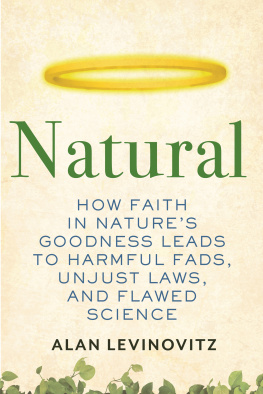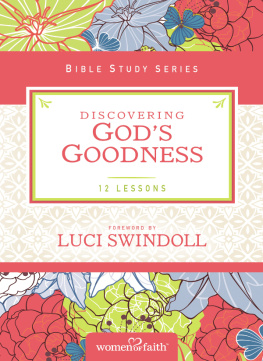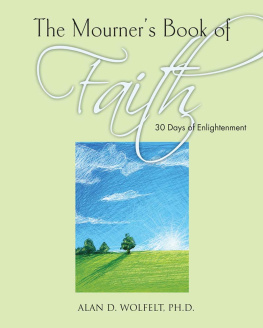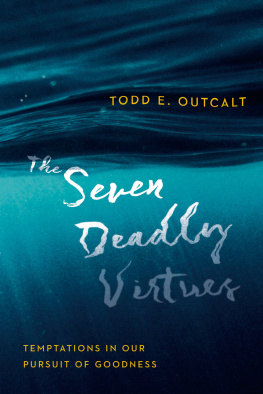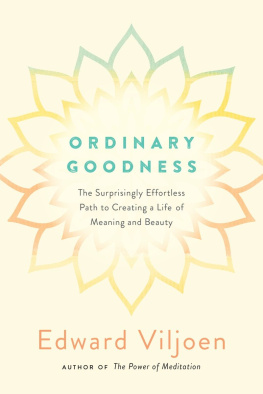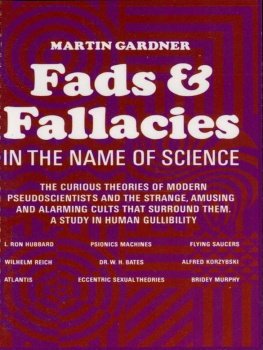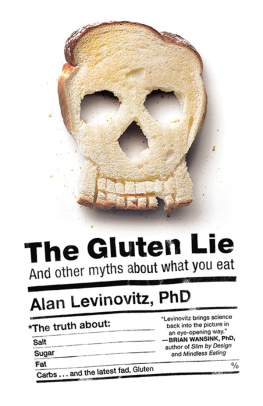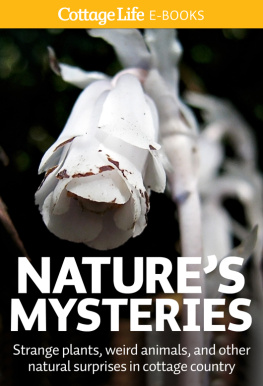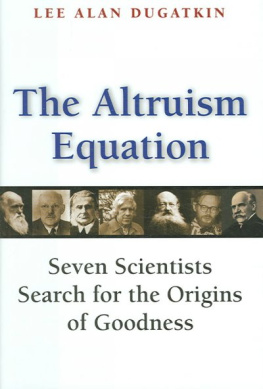Alan Levinovitz - Natural: How Faith in Natures Goodness Leads to Harmful Fads, Unjust Laws, and Flawed Science
Here you can read online Alan Levinovitz - Natural: How Faith in Natures Goodness Leads to Harmful Fads, Unjust Laws, and Flawed Science full text of the book (entire story) in english for free. Download pdf and epub, get meaning, cover and reviews about this ebook. year: 2020, publisher: Beacon Press, genre: Romance novel. Description of the work, (preface) as well as reviews are available. Best literature library LitArk.com created for fans of good reading and offers a wide selection of genres:
Romance novel
Science fiction
Adventure
Detective
Science
History
Home and family
Prose
Art
Politics
Computer
Non-fiction
Religion
Business
Children
Humor
Choose a favorite category and find really read worthwhile books. Enjoy immersion in the world of imagination, feel the emotions of the characters or learn something new for yourself, make an fascinating discovery.
- Book:Natural: How Faith in Natures Goodness Leads to Harmful Fads, Unjust Laws, and Flawed Science
- Author:
- Publisher:Beacon Press
- Genre:
- Year:2020
- Rating:3 / 5
- Favourites:Add to favourites
- Your mark:
- 60
- 1
- 2
- 3
- 4
- 5
Natural: How Faith in Natures Goodness Leads to Harmful Fads, Unjust Laws, and Flawed Science: summary, description and annotation
We offer to read an annotation, description, summary or preface (depends on what the author of the book "Natural: How Faith in Natures Goodness Leads to Harmful Fads, Unjust Laws, and Flawed Science" wrote himself). If you haven't found the necessary information about the book — write in the comments, we will try to find it.
Natural: How Faith in Natures Goodness Leads to Harmful Fads, Unjust Laws, and Flawed Science — read online for free the complete book (whole text) full work
Below is the text of the book, divided by pages. System saving the place of the last page read, allows you to conveniently read the book "Natural: How Faith in Natures Goodness Leads to Harmful Fads, Unjust Laws, and Flawed Science" online for free, without having to search again every time where you left off. Put a bookmark, and you can go to the page where you finished reading at any time.
Font size:
Interval:
Bookmark:


To my family
NATURE : Since I am the whole that exists, how is it possible for a being like you, so small a portion of myself, to comprehend me? Be content, atoms my children, with seeing a few atoms that surround you, with drinking a few drops of my milk, with vegetating a few moments on my breast, and at last dying without having known your mother and your nurse.
VOLTAIRE , The Philosophical Dictionary
HOW CAN WE LIVE IN HARMONY with nature?
Animal species, millions of years in the making, gone in a geological blink; ancient waterways clouded with waste; the land disemboweled and burned; the fumes heating the planetwith every passing day the damage grows worse, the question more urgent.
One promising answer was served for dinner at a recent conference on the future of environmentalism. Along with some of the worlds foremost scientists, journalists, and academics, I bit into my Impossible Burger, the latest in high-tech fake meat, and wondered if it would live up to the hype. Not just in terms of flavorwhich to my palate was indistinguishable from a standard fast-food pattybut as a solution for our broken relationship with the natural world.
Enthusiasts see meat substitutes as essential, even salvific. Fake Meat Will Save Us, proclaimed a headline in the New York Times the morning after our dinner. Impossible Foods mission is To save meat. And earth. Their enthusiasm is understandable: scientists agree that animal agriculture as it is currently practiced plays an outsize role in climate change, oceanic dead zones, antibiotic-resistant bacteria, and other unnatural horrors. Then theres the ethics of eating creatures bred to be cheap factory outputs, crammed cheek by jowl in ghastly living quarters until theyre old enough to be slaughtered. Impossible Burgers and other fakes provide an appealing alternative, allowing us both to reduce our culinary carbon footprint and to treat animals with dignity, instead of seeing them, and the rest of nature, as raw material meant for the fulfillment of human desires.
Only days earlier, however, my family and I had dined on a radically different answera juicy pork loin purchased from Polyface Farm, just an hour from our home. The farm is 550 bucolic acres of open grassland and wooded hillsides deep in Virginias Shenandoah Valley, at the end of a bumpy dirt road called Pure Meadows Lane. The road was named by Joel Salatin, founder of Polyface, to reflect the natural purity of the land he stewards, and his redemptive vision of a purified relationship between humans and what he reverently calls Creation.
Touring the farm I found myself wholly won over by the power of his vision, which the journalist Michael Pollan described as a dance on the theme of symbiosis performed by humans, animals, and plants on natures stage. Upon arriving I saw a toddler playing happily with rabbits in front of open greenhousesnot pet rabbits, but rabbits that would eventually be slaughtered and eaten or sold. With a few other visitors I hiked up a hill, stepped over a single electric wire, and joined a group of pigs that were rooting away with pleasure. We shared a field with cattle as they flicked flies with their tails and munched on native grasses. Good farming should be aesthetically, aromatically, and sensually romantic, said Salatin proudly, surveying the scene. His farm certainly was. Birdsong and the hum of insects filled the sweet-smelling air, and I felt a primal need for closeness with nature fulfilled, as if I were on a hike in a national park.
A passionate environmentalist, Salatin regularly calls out the hubris of fellow conservative Christians who seek to replace a divinely ordained natural order with one of their own making. Unlike chemical-wielding farmers, as he refers to them, Salatin raises chickens, pigs, rabbits, turkeys, sheep, and cattle according to natures template. Lagoons of manure that contribute to dead zones? Every ounce of manure at Polyface fertilizes vegetables and grasses, in addition to attracting grubs that feed the chickens. Routine dosing with antibiotics? Unnecessary, declares Salatin, because he allows his animals to live as nature intended.
According to his philosophy, Impossible Burgers epitomize the problem with our relationship to nature, not the solution. They depend on genetically modified soy for a protein called soy leghemogloblin (the eleventh of twenty-one ingredients), which lends a characteristic meaty flavor. GMOs... egregiously violate Gods pattern, claims Salatin, a phrase he uses interchangeably with natures pattern. He has blamed the consumption of genetically modified foods for everything from increasing allergies to increasing violence. When I asked if he could imagine some role for these technologies in the future of food, his answer was unequivocal: There is no redeeming value to GMOs or fake meat. If we want to live in harmony with Creation, we should honor the wisdom of natural systems rather than manipulate them further. Like ancient hunter-gatherers and traditional small-scale farmers, we must sanctify our relationship with the animals we eat, not remove ourselves from the cycle of life. The way of artificial hubris ends in damnation, not salvation.
Over our dinner of genetically modified patties I described Salatins perspective to other attendees. Since the conference was sponsored by an organization that strongly supports technological approaches to conservation, their responses were unsurprising. Some scoffed at the very idea of a division between natural and unnatural. Isnt everything natural? Isnt nature a social construct? Others were willing to grant the division, but insisted that saving nature depends on transcending natural patterns. Denser cities, effective birth control, and intensive agriculture may violate natures template, but they will help us meet important conservation goals such as reduced land use and lower carbon emissions. The contrast with Salatin couldnt have been starker: when Pollan pressed him on how to feed New York City using locally sourced food, Salatin replied, Why do we have to have a New York City? What good is it?
Pork loin or Impossible Burger? The country or the city? Again and again, the question of our proper relationship with nature is reframed in the same way: Should we obey nature or transcend it?
This book is a comprehensive response to that question. Instead of choosing sides, it shows how the framing is fundamentally misguided and counterproductive. An oppositional binary between natural and unnatural inhibits constructive dialogue about humanitys most pressing problems. It trades complicated truths for the comfort of clear categories. It encourages dogmatism over compromise, certainty over humility, and simplicity over nuance.
Breaking down the binary wont be easy, however, since the appeal to natural goodness is among the most influential arguments in the history of human thought. Far from being restricted to modern debates over food, we will see how this argument has influenced virtually every aspect of our individual and collective lives, from sexual habits to economic principles, from how we raise our children to how we organize their sports.
Variations on the idea of natural goodness are ubiquitous in all intellectual traditions, ancient and modern, East and West. In ancient China, sages wrote approvingly of ziran, the self-so of natural impulses uncorrupted by human meddling. Monks promised miraculous healing if people abandoned their homes for caves and gave up farming to forage in the wild. Across the globe, Greek poets told of a golden age when natural laws made politics unnecessary and a golden race lived effortlessly off natures bounty.
Font size:
Interval:
Bookmark:
Similar books «Natural: How Faith in Natures Goodness Leads to Harmful Fads, Unjust Laws, and Flawed Science»
Look at similar books to Natural: How Faith in Natures Goodness Leads to Harmful Fads, Unjust Laws, and Flawed Science. We have selected literature similar in name and meaning in the hope of providing readers with more options to find new, interesting, not yet read works.
Discussion, reviews of the book Natural: How Faith in Natures Goodness Leads to Harmful Fads, Unjust Laws, and Flawed Science and just readers' own opinions. Leave your comments, write what you think about the work, its meaning or the main characters. Specify what exactly you liked and what you didn't like, and why you think so.

